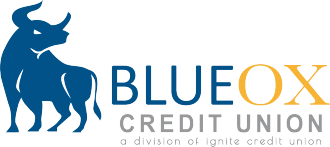account security: 3 easy ways to protect your online accounts

Our world is ever-changing and evolving – and so are cybercriminals! These days, we carry our lives on our phones, from social media accounts to health records and even online banking accounts. Read on to learn 3 easy ways to protect your online accounts.
1. keep your personal information updated
Things rarely stay the same for long – details about our lives can change at any moment! It’s crucial to keep your personal information updated with your financial institution. Doing so will ensure that they can get ahold of you quickly if needed in regard to your finances and can help prevent financial fraud.
Keep your financial institution in the know by updating your information for the following instances:
- Moving – Have you moved to a new address? Or heading to a second residence for warmer weather? Regardless of whether the move is long or not, it’s important to update this information so your credit union can ensure you’re getting credit card statements, important information, and more.
- Life Events – Marriage, divorce, and the death of someone on your account are all examples of life events that would require you to update your personal information with your financial institution.
- Contact Updates – Did you change your email address or get a new phone number? Let your financial institution know so they have the best information to reach you!
2. update and change your passwords
Regularly updating, changing, and creating strong passwords is an essential practice to maintain strong password security. As new vulnerabilities and hacking techniques emerge, it's crucial to stay ahead of potential threats by updating your passwords regularly.
When changing your passwords, ensure you create a strong password with at least 8 characters, a combination of upper and lowercase letters, numbers, and special characters. By regularly updating and changing your passwords, you add an extra layer of protection to your online accounts.
3. use multifactor authentication
Speaking of adding an extra layer of protection to your online accounts – utilizing multifactor authentication (MFA) is a great way to ensure the protection of your accounts and information. MFA adds other ways to authenticate yourself when accessing your online accounts and reduces the possibility of unauthorized access, even if your password is compromised.
Common examples of MFA include a code sent to your email on file or via text to your phone number on the account or biometric verification like a fingerprint or facial scan.
what’s next?
Credit unions are in the business of helping you! And that includes helping you protect your personal information. Check with your institution on what services and perks they may offer to help you further protect your accounts. You can never be too cautious when it comes to your personal information and finances.
« Return to "BlueOx Blog"
